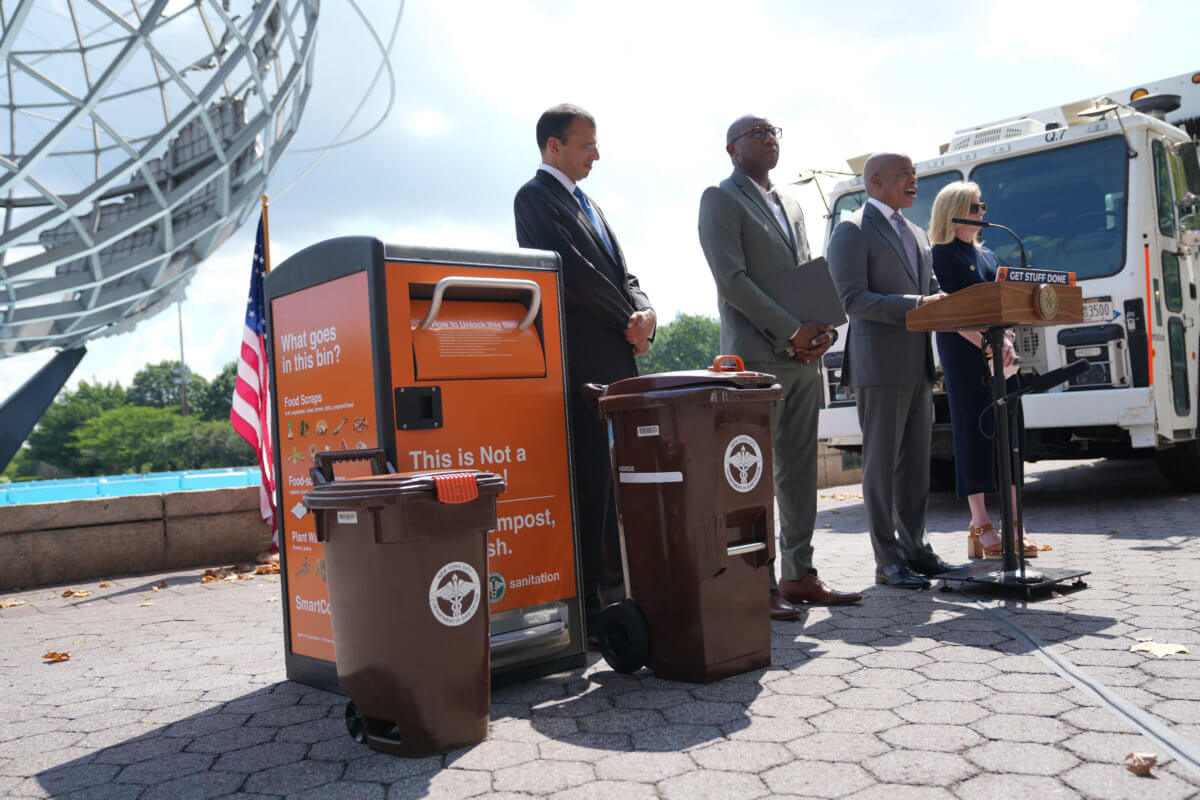Mayor Adams and city officials announce the Queens composting program at the Unisphere in Flushing Meadows–Corona Park on Aug. 8.
Michael Appleton/Mayor’s office
Climate change is here. Between the spiking temps, wildfire haze, flooding rainstorms and other troubling signs, there is no doubt that a global crisis is underway. While the challenges presented by climate are daunting, there are important, effective ways to minimize our carbon footprint, as individuals and as New Yorkers — like composting.
Composting is an easy way to keep organic waste out of landfills. About a third of New York City’s residential waste stream is organic, and when it goes into a landfill, it breaks down into greenhouse gasses. But when it gets processed as compost, it yields a nutrient-rich fertilizer that can be used for all sorts of eco-friendly purposes.
For the last year and a half, the Downtown Alliance has been working with the Department of Sanitation to run a public composting pilot in Lower Manhattan. The Alliance installed 10 app-secured composting bins around the neighborhood, all accessible 24/7 and located within a short walk from nearly anywhere in our district. The program’s intended goal was to test whether an app-secured bin could be used successfully in a busy downtown area, as well as to generally make composting more accessible to people in Lower Manhattan.
And we hit it out of the park.
We initially projected that a couple hundred people would sign up for the program, but as of the end of May, we had more than 2,500 enrolled, more than half of whom were repeat users. The bins have been used more than 31,000 times since the program’s inception, and we’ve collected more than 105,000 pounds of compost — that’s about seven adult elephants worth!
Most importantly, the program has revolutionized how people downtown dispose of their waste. Though composting isn’t exactly new to New York City, prior to our pilot program, downtown workers and…
Read the full article here

Leave a Reply